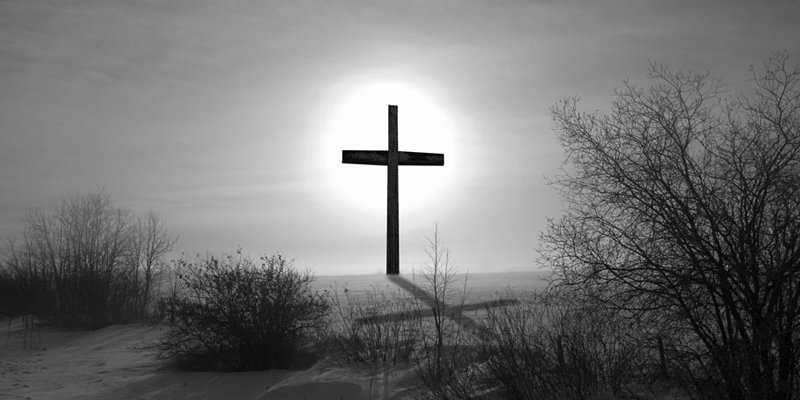
by Harold Dean Trulear, Ph.D. | Apr 16, 2024 | Commentary, Headline News |
Early Easter morning, millions awaken before sunrise with a purpose. The dark skies give faint hint of the sunrise within the hour. A stretch of the arms, a wipe through the eyes, feet reaching downward for temporary covering against the floor terrain, and it is time to get moving. Slivers of remaining moonlight provide faint illumination through narrow openings above the bed. The millions have heard the call, and now respond! The time has come to join the line as men and women, even some boys and girls put their feet in the line to the appointed destination to which they are called this Easter Sunday. There they will see familiar faces, hear familiar sounds, and may even smell familiar odors. It is a dawn of a new day, and they are on their way.
Their destination? “Chow call” in the prison refectory or “Meds up!” to the cart the nurse brings on the unit for those requiring morning medication. The stretch of the arms relieves some of the tension from the cell’s hard cot, the eyes crusted literally and figuratively by biology and monotony, the floor’s terrain cold on even the warmest day when one’s address is prison. We do not know how many millions go to church on Easter–but we know how many awaken in state and federal prisons: an excruciating 2.1 million men and women arise at Easter’s sunrise to another day when they seem oblivious to anyone on the other side of the prison walls. Another several million arise in county jails, many not physically far from home but incarnations of “out of sight, out of mind” even to those who are descendants of those to whom Jesus spoke just before his arrest and incarceration “I was in prison, and you visited me.”
Yes, millions have arisen with a purpose: count down the days, occupy the mind, anticipate a visit, and perhaps even attend chapel — purpose is a precious commodity for them. They are inmates, prisoners, convicts peopling America’s jails and prisons in record numbers — over two million in state and federal prison alone — and they arise every morning about the time the Easter Sunrise service crowd shakes the cobwebs from their consciousness to face their annual celebration.
The Easter lens well fits any view of incarceration. After all, when Jesus Christ died on the cross, he was an inmate. We celebrate the truth that God raised his only begotten son from the grave — we overlook the fact that the body which breathed its last before burial belonged to a prisoner. He hung between two thieve or malefactors, but “was numbered” with them as well.
Shame and Stigma of Incarceration
Incarceration in America carries more than the punishment of “doing time.” Shame and stigmatization plague an inmate during incarceration and after release. Those twin maladies spread like a virus to relatives left behind, children separated from fathers and mothers, parents grieving for their children, grandparents serving as caretakers for a generation forty, fifty, and sixty years their junior while fathers stretch their arm in the cell and mothers wipe their eyes on the block. Shame and stigma, contagious and infectious as they manifest in symptoms of silence, rendering the affected loved one incapable of sharing the true hurt with anyone at the Sunrise service in celebration of the Risen Inmate!
It is Easter sunrise…. God listens for the praise of God’s people from the cathedrals and storefronts, the megachurch and mass choirs, parish priests and local pastors, pulpit and pew. But God also listens for the prayers of the prisoner, wrestling with past demons, present conditions, and future uncertainty, all with some hope of the transformation promised by the Risen Inmate who makes all things new. Millions arose this Easter morning to attend a sunrise service. Millions more arose to attend to the business of doing time.
An important connection exists between these two populations — this dual set of early risers on Easter morning. Many of them count people in the other crowd as kin — many who run with one crowd used to sit with the other. Many who heard the sound of the choir’s “Hallelujah Chorus” or “Christ the Lord is Risen Today,” or “Praise is What I Do,” this morning once heard “Chow Up,” or the slow grind of motors turning to open a series of cell doors. The cymbal was the clanging of cages, the tambourine the rattling of chains. And some who this morning donned uniform orange, blue or tan jumpsuits once sported matching white or black robes on a morning such as this.
Preaching seldom reaches the pain felt by the incarcerated and their families. The separation traumatizes, the anger and disappointment of those left behind papered over by Sunday School memories of lessons on forgiveness. Many incarcerated parents long to see their children; some allow shame to hold their children at bay. Many who do seek the comfort of the Risen Inmate to dry their tears and encourage their hearts find disappointment in the prison chapel service when the local church sends well-meaning but poorly trained volunteers to preach sermons that the church’s pastor would never allow on a Sunday morning, especially an Easter Sunrise service.
Seldom do they hear that the Risen Inmate ministered to another convict before dying by telling him that he would be in paradise with him. They rarely hear that the Risen Inmate suffered brutally at the hands of the corrections officers, and was raised with evidence in his hands of eighth amendment violations of cruel and unusual punishment. They do not hear about the Risen Inmate’s long march up the Via Dolorosa to “endure the cross, despising the shame” as an encouragement for them to receive strength from knowing that “Jesus knows all about our struggles…” They hear an Easter message that rehearses the resurrection as saving act, but seldom as the sustaining act which brings “a living hope.”
Gospel of the Risen Inmate
The late Rev. Lonnie McLeod, who completed his first seminary degree in the New York Theological Seminary Sing Sing program said, “In all my time incarcerated, I really only heard one sermon: you messed up, you got caught, get saved …” But not only does salvation come by preaching, but also “faith comes by hearing, and hearing by the “preaching of the Risen Inmate. After his release, McLeod’s preaching both in and out of prisons and jails acknowledged the pain caused by incarceration. At his passing in 2009, he was working on a Christmas sermon that dealt with the pain of incarceration. I asked him how he could make the connection between the manger and the penitentiary, and the good Dr. boldy remarked: “Trulear, this is Christmas. Everybody wants to talk about the first night of Jesus’ life. But no one wants to talk about the last night. And without the events of the last night, the first night loses its meaning! His incarceration, execution, and vindication make his birth worth celebrating!
This does not mean that prison preaching overlooks the responsibility of prisoners to own their sins. Accountability, indeed, signals a recognition of the humanity The Risen Inmate was executed to restore. The “Adam, where art thou” question lives in the Risen Inmate’s heart, for it is precisely for the sinner that he has come. He has come for the one who uses “wrong place, wrong time, wrong crowd” the same way Adam used “wrong crowd” to describe “the woman that You gave me.” He came for the violent defender of a friend’s honor, and will transform and use him even as he did Moses. He came for the popular musician who conspired to put out a hit on another man so he could have his wife, all while singing, “The Lord is my Shepherd, I see what I want.” He counted the transgressions of a contracted hit man, accessory to murder as his own- and that same man later wrote that “while we were yet sinners, Christ died for the ungodly.” The Risen Inmate sees their humanity, and for precisely that reason calls the unrighteous, the violent offender to become a deliverer of his people, the lamp of Israel, and an apostle to the Gentiles.
Not only does the Risen Inmate have a word for those persons arising in America’s jails and prisons on Easter, the Risen Inmate seeks to be seen and heard of the families left behind. Families struggle to hear a word for them in the pain of separation. They sit on the Good Friday side of the sentencing of the Risen Inmate, and don’t always see the potential for a reunion in the garden on Easter Morning. “Touch me not” stares from signs in the visitation room. It wells up in the heads on visitors subjected to searches by the corrections officers before and after time with an inmate. It is not a phrase pointing to ascension, but a descent into deprivation, motivated by security and draped in dehumanization. They want a word that addresses the morning they came to visit with new prison clothes, like the women who cam that first Easter with new grave clothes for the Risen Inmate. But when these families are told “He is not here,” it does not point to the surprise turned joy of a resurrection, but disillusionment turned panic in the discovery of a transfer to another facility, or a confinement to solitary. Does the preacher, in the name of the Risen Inmate, have a word for them?
Reimagining Our Prison Ministry
My colleague Dr. Kenyatta Gilbert once asked me to post a sermon on his website The Preaching Project, with the subject being preaching to families of the incarcerated. The message, titled “Preacher, We Are Dying in Here,” makes the case that preaching to the families of the incarcerated is something we already do! They people our pews, tithe their treasure, sing their songs, pray their prayers every Sunday, but suffer in silence. The church may have a prison ministry, but it often does not touch them, or their incarcerated family member. Prison ministry is institution focused, unlike ministry to the sick. If we replaced ministry to and visitation of the sick with the prison model, we would stop visiting individuals and families connected with the church, and just train three volunteers to give a service and a sermon once a month at the local hospital. The Risen Inmate declared that the church “shall be witnesses unto me, in Jerusalem, in Judea, in Samaria and unto the uttermost parts of the earth.” For most, the jail of prison is the uttermost part of the earth; for the family of the incarcerated, it is Jerusalem.
Preaching often overlooks the scars of the formerly incarcerated, wounded by warehousing, roughed up in reentry. They looked forward to their release date as a time to step into the Promised Land, only to discover a wilderness of collateral sanctions limiting their ability to work, find housing, access education and exercise their franchise. The wilderness extends to congregations that either openly reject them, or buy into the world’s stigmatization process rendering them silent. Theirs is a tacit fellowship of frustration shepherded by shame, silence, and stigma. And the ones who come home to this stony reality find a wilderness where they had expected grapes in bunches for two men to carry.
The newspapers and other media champion the need for jobs for ex-offenders. Employment woes dot the pages of those outlets that give the formerly incarcerated coverage at all. Poor training and education wed the stigma and shame of incarceration in a double ring ceremony that morphs from ties that bind into chains that restrict. A word from the Risen Inmate can minister Easter hope beyond incarceration, and encourage the jobless soul on the other side of imprisonment. The Resurrection says that there is life beyond the dank jail, the taunts of guards and fellow inmates, the pain of separation from loved ones. “I have scars,” Jesus declares, “but I am useful, triumphant, compassionate and giving!” It is Jesus, post-release, who says “Fear not.” It is Jesus, post-release, who says “Feed my sheep.” The post-release Risen Inmate declares “All power has been given unto me in heaven and in earth.”
And he promises his presence “even to the end of the earth.” There is a word for the ex-offender! A promise of a transformative permanent presence that knows how to look at a former accomplice who turned scared on him to avoid arrest, and tell him to feed his lambs. The Risen Inmate knows something about change, and trusting the formerly untrustworthy. He anticipated the change when he told Simon Johnson that he was a rock. So too does he call the formerly incarcerated by names that spell hope and promise, like the term “returning citizens.” But most of all he calls them human, beloved, and even “fearfully and wonderfully made,” and that, the conspirator who put out a hit on Uriah the Hittite knew right well.
And Remembering the Victims
Is there a word from the Risen Inmate for those who have been victims of crime? What is a bold Easter message for families of victims, by walking toughs of town watch, by drive-by or beef, by violence domestic or street? Does God hear their pain on this Easter sunrise, and what evidence is there in the text expounded to let them know that the Healing God knows. The horrific screams heard on a Florida 911 tape may echo those of the sobs of a mother witnessing the unjust execution of her Son by alleged protectors of the common good. Is there no word for her?
“Woman, behold thy son, Son behold thy mother,” comes from the lips of the Preaching Inmate in a message that speaks hope and application in a moment of deep grief. When the Inmate’s visitors go home, they share space and possessions in a family reconfigured to provide care for her misery. The women received a word — but that word became flesh in the ministry of caregiving John supplied surrounding her, the victim of a horrific crime.
The Risen Inmate demonstrates in three days the woman’s vindication by virtue of the Resurrection. In the background, an Easter choir of formerly enslaved Africans, the old Jim Crow, sings: “I’m so glad trouble don’t last always.”
Grabbing Resurrection Hope
Easter brims with the fullness of incarceration and its implications. It celebrates the vindication of the life of a man who did the hardest of time in the shortest of time. It recognizes that the One whose life we celebrate understood the pain of incarceration. Easter brings to judgment our fear of the inmate, our stigmatization of the prisoner, our shunning of those who return for a second chance-or a third chance, or a fourth chance…Simon Johnson elicited a response from the man destined for incarceration of seven times seventy.
Early Easter morning, millions awaken before sunrise with a purpose. The dark skies give faint hint of the sunrise within the hour. A stretch of the arms, a wipe through the eyes, feet reaching downward for temporary covering against the floor terrain and it is time to get moving. Slivers of remaining moonlight provide faint illumination through narrow openings above the bed. The millions have heard the call, and now respond! The time has come to join the line as men and women, even some boys and girls put their feet in the line to the appointed destination to which they are called this Easter Sunday. There they will see familiar faces, hear familiar sounds and may even smell familiar odors. It is a dawn of a new day, and they are on their way.
Early on the first Easter morning, one was risen for all of them.
This essay originally appeared at The Living Pulpit. It is reposted here by permission.
by Allen Reynolds, UrbanFaith Editor | Jun 16, 2023 | Commentary, Headline News, Prayers & Devotionals, Relationships |
 Every year during Father’s Day, a wave of complexity sweeps across the country. Father’s Day can be an great occasion for celebration, a reminder of loved ones lost, a day of sadness for those who did not grow up with their fathers, a day of angst for those who do not like their fathers, and a day of relaxation for the dads who treat it as a break. And every year in churches, we try to figure out how to approach and celebrate Father’s Day. Father’s Day is not celebrated in our society the way Mother’s Day is, and everyone knows it. We know how to celebrate mothers. We know what to get them; the flowers, clothes, crafts, candies, meals, and more are readily available with updates each year. But Father’s Day feels mysterious. We ask ourselves, did we already get this tie? These socks? This outdoor equipment? Why is it that we may struggle so much to honor fathers but find it easy to bless our mothers? The answers are unclear and varied. But if we start with figuring out how to honor God as our heavenly Father, it may help us get better at honoring our earthly fathers.
Every year during Father’s Day, a wave of complexity sweeps across the country. Father’s Day can be an great occasion for celebration, a reminder of loved ones lost, a day of sadness for those who did not grow up with their fathers, a day of angst for those who do not like their fathers, and a day of relaxation for the dads who treat it as a break. And every year in churches, we try to figure out how to approach and celebrate Father’s Day. Father’s Day is not celebrated in our society the way Mother’s Day is, and everyone knows it. We know how to celebrate mothers. We know what to get them; the flowers, clothes, crafts, candies, meals, and more are readily available with updates each year. But Father’s Day feels mysterious. We ask ourselves, did we already get this tie? These socks? This outdoor equipment? Why is it that we may struggle so much to honor fathers but find it easy to bless our mothers? The answers are unclear and varied. But if we start with figuring out how to honor God as our heavenly Father, it may help us get better at honoring our earthly fathers.

God is Our Father
The Bible refers to God as a father in multiple places in the Old and New Testament. Moses notes in Deuteronomy 1:31 that God cared for Israel in the wilderness like a father cares for their child. The Lord protects and provides for Israel as He leads them out of bondage. He says at the end of the same book that God is to be respected because He fathered Israel by creating, forming, and establishing them, and He mothered them by giving birth to them. Psalm 68:5 identifies God as the Father of the fatherless and defender of widows. God is the Father who cares for us when human fathers are not present. Isaiah 9:6 prophesies that God is the everlasting Father, and Malachi proclaims that all in his audience are children of the same Father God. But Jesus makes this relationship with God even clearer. Jesus calls God His Father, and He is identified as the Son of God in each of the Gospels. In Galatians 4:5-7, Paul explains that believers in Christ are children of God, and John declares that truth in 1 John 5:1. So it is clear in scripture that God is a Father to all who will receive Him as one. But what does that mean for us?
How God Relates To Us As A Father
God is a Spirit and cannot be fully understood or explained using any analogy or even human language. God is greater than any roles we could use to try to explain Him: father, mother, king, brother, friend, lover, lord, healer, provider, protector, or otherwise. But God chooses to reveal Godself in ways we can understand so we can have a genuine relationship with God. It is because of the descriptions of God relating as a Father in Scripture that we can relate to God a little better and also to human fathers a little better. God relates as a father in many ways but a few key ones we’ve already mentioned are as a source of identity, a protector, a provider, a caregiver, and a guide. God rebukes David and also encourages Him which other biblical fathers do. Hebrews 12 makes it clear that God corrects us because we are His children. Galatians 4 underscores that God blesses us because we are His children. God is present with us in good times and bad times, like any good father. God leads, encourages, provides, protects, corrects, counsels, comforts, and instructs us in the wilderness and the places of plenty as a good Father. Most of all, God loves us as our heavenly Father. God has shown Himself to be a good Father, but how can we be good children to God our Father?
How We Honor God Our Father
Jesus gives us the perfect example of what it means to be a good child of God, demonstrating how to honor God. Summed up, it is to love God. We love God through obedience. We love God through spending time with Him. We love God through caring about what He cares about. We love God through giving to other people, because He doesn’t need our money. We love God by doing the work and ministry He has called us to do. We love God by loving our neighbors well. We love God by doing justice. We love God by using our lives to bring Him glory, which is to live in a way that makes Him proud. Jesus explains at length in John 8:31-58 that Father God loves it when we believe in Jesus and do what He said. 1 John 5:1-5 is exceedingly clear that obeying God and loving others is how we can express our love to God. Now that we understand how to honor God as our Father, how do we honor our earthly fathers?

How Can We Honor Our Human Fathers
Human fathers can never truly compare to our Father God. We shouldn’t even expect them to reach that standard. But they should follow God as the standard, and we should honor them as our fathers if we have good relationships with them. Earthly fathers can be honored in many of the same ways as our Heavenly Father.
It all comes back to loving our dads. When we care about the things our fathers care about, it makes them happy. It may be sports, cooking, fishing, movies, work, decorating, or some other hobby. When we show care about what dads care about, it brings them honor. We give to dads because they do need our money and gifts, unlike God. Give them something they like, and ask for ideas if you need them. Spend time with your dad if you can. Many people wish they could. If you have an opportunity, then take advantage–it will definitely bring your dad happiness on Father’s Day.
When young children do what their father says, it brings their father honor and happiness. As a father myself, I cannot tell you the joy I have when my children do what I told them to do without complaining, demonstrating a bad attitude, giving up, or getting distracted. When we are older, this obedience becomes conversational. If you want to honor your father on Father’s Day, ask him what He wants! Sometimes we spend so much time trying to figure out what our dads want instead of simply asking them and then following through. This simple form of relating can bring honor to a father like nothing else.
But many dads will tell you the best honor their children can give them on Father’s Day or any other day is to live lives that make them proud. Just keep following God your Father. If you honor God with your life, you can rest assured you are making our Heavenly Father and every good dad proud.

by Allen Reynolds, UrbanFaith Editor | Jan 23, 2023 | Headline News |

When we are in times of transition, it can be easy to fall into fear. Many of us do not like change. We would rather be settled and know the ground we stand on. We like our second year at the new company. Our junior year of school. Year two of our relationship. When our organization or project is fully funded. Many of us thrive when we feel we’re on a firm foundation, and we’re nervous when we are launching into the unknown. Yet many of us find ourselves at a crossroads and long for clarity about how to move forward.
In Matthew 14:22, we read about the disciples in transition as they launched across the Sea of Galilee once again, headed from one miracle with Jesus to another. They had learned that whenever Jesus showed up in a new town, He created a stir. His presence led to crowds ready to run him out of town, plead with him for healing, press to hear him teach, or follow Him in curiosity.

But things felt uncertain on the sea that day. The Sea of Galilee was not an unfamiliar place–some of them were fishermen, and all of them lived near the sea their entire lives. The feelings of difficulty didn’t come with the place, but from the circumstances. The last time they were on the sea together, a storm almost destroyed their ship, but Jesus was there to save them. But this time they were back on the Sea of Galilee, sailing late at night without Jesus. His absence meant that anything could happen. They found their peace in His presence. Without Him, they felt a little more uneasy about everything. They knew where they were going and where they were coming from. But they were in transition without the presence of the Lord.
And then they saw a figure walking across the lake. They became terrified, and their place of transition became a place of fear. A figure out on the water with no boat walking above the waves was not a pleasant sight–it looked like a ghost. They had every reason to be afraid. We can relate to their fear of the unexpected showing up in the midst of the unknown.
Then Jesus called out to them, and they understood that what they were seeing was not a ghost. It was the Lord. In the space between the last and the next, God showed up for them in an unexpected way. Their place of uncertainty became a place of the miraculous.
Similarly, God is able to show up for us in unexpected ways when our circumstances change. It may look like we are alone as we move to new cities, start new jobs, or find new relationships. The water can seem unstable beneath us as it flows without clarity, especially when the night surrounds us. But if we remember that God is with us always and can meet us right where we are, we may find ourselves walking on the water with Jesus on the way to our destinations.





 Every year during Father’s Day, a wave of complexity sweeps across the country. Father’s Day can be an great occasion for celebration, a reminder of loved ones lost, a day of sadness for those who did not grow up with their fathers, a day of angst for those who do not like their fathers, and a day of relaxation for the dads who treat it as a break. And e
Every year during Father’s Day, a wave of complexity sweeps across the country. Father’s Day can be an great occasion for celebration, a reminder of loved ones lost, a day of sadness for those who did not grow up with their fathers, a day of angst for those who do not like their fathers, and a day of relaxation for the dads who treat it as a break. And e





